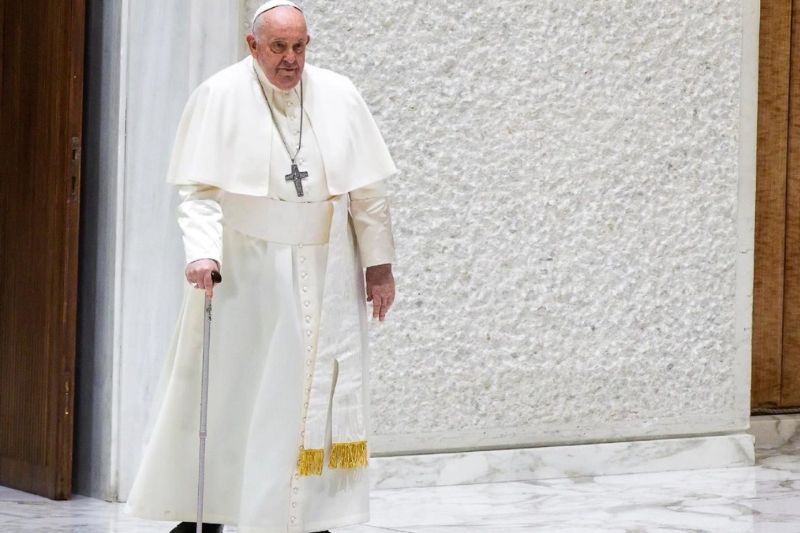There has been much fluttering in episcopal dovecotes recently – in Africa especially, but not only there. On December 18, 2023, the Dicastery for the Doctrine of the Faith in the Vatican issued a ‘Declaration’, ‘Fiducia Supplicans’ (‘Supplicating Trust’), licensing priests to bless partners in same-sex and other ‘irregular’ relationships (divorced and remarried couples, couples ‘living in sin’, etc ) when they are approached in good faith. It did not license priests to bless the union/relationship itself, for this would seem as if the Church was condoning same-sex and other ‘irregular’ relationships. Rather, it was the informal, non-liturgical blessing of each of the partners in these relationships that the Church was licensing. Provided that such blessings were informal and patently distinct from the liturgical blessings that are invoked in the liturgy of the Sacrament of Marriage for husband and wife, the Declaration permitted priests to call down God’s blessing on homosexual and other ‘irregular’ couples who approach them in good faith.

This was a surprising and controversial development. Just two years earlier, on February 22, 2021, in response to a ‘dubium’ (doubt) raised by some Cardinals, the same Dicastery had explicitly forbidden priests from blessing partners in homosexual relationships precisely because it might be interpreted as condoning same-sex marriage. So, it was not surprising that many bishops and commentators were taken aback by the 2023 volte-face.
Especially, as I say, the African bishops – at least, most of them. In over thirty African countries homosexual relationships are still criminalized. So, a Declaration licensing the blessing of members of a homosexual relationship could not but appear not only scandalous but an affront to those local and regional legal systems. The African bishops, led by the influential Cardinal Ambongo, one of the Pope’s closet advisers, responded virtually immediately, questioning the wisdom of the Declaration and asserting in no uncertain terms that they would not be taking advantage of the relaxation. Bishops in Kazakhstan, in Hungary and in the Ukraine have joined this chorus of disapproval.
In the West, however, and, indeed, in Northern Africa, the Declaration has been received positively as an initiative to include those in irregular relationships more explicitly in the Church’s pastoral outreach. It is part of a project, most extensively articulated in Chapter 8 of the papal encyclical ‘Amoris Laetitia’ (‘The Joy of Love’), to reach out to Catholics alienated from the Church by the circumstances of their lifestyle choices. Instead of drawing a line in the sand and excluding those who do not measure up, the Pope, aided by the creative theology of the Dicastery’s Prefect, Cardinal Fernandez, has sought to engage non-judgmentally with this alienated cohort.

In a similar vein, only a couple of days previous to the Declaration, on December 15, 2023, the Cardinal had responded very inclusively to a bishop who had asked in respect of single mothers whether the children of such mothers could be baptized and whether such mothers could be sponsors in Baptism. In both instances the Cardinal, citing a number of remarks of the Pope, said that there was no in principle objection to either request and that single mothers should be encouraged to access all the Sacraments and to participate actively in the life of their Christian communities.
Equally, in his responses to the five dubia of the five Cardinals just prior to the opening of the Synod on Synodality in October 2023, the Pope demonstrated a flexibility that moderated the ‘letter of the law’ presuppositions of the five traditionalist Cardinals. While he did not resile from affirming the Church’s traditional teaching in each of these five responses to the Cardinals, he indicated that there were nuances to be taken into account when responding to particular pastoral situations. Instead of a logic that was exclusive, deductive, legalist and judgmental, he suggested an approach that was inclusive, inductive, pastoral and sympathetic to the situations in which the ‘irregular’ couples found themselves more or less inextricably involved.
The same less judgmental approach was evident in the Vatican letter, ‘Samaritanus Bonus’ (‘The Good Samaritan’), July 14, 2020, which indicated how the Church should minister to those who were irrevocably committed to euthanasia as an end-of-life option. Instead of abandoning such patients, the Vatican letter recommended a continuing engagement with them virtually to the moment of a accessing the lethal potion. Prayers for the deceased and even a Catholic funeral are also commended.
.png)
In each of these recent instances – blessing ‘irregular’ partners, embracing single mothers, ministering to euthanasia patients, as well as in the responses to the five Cardinals – the Vatican Dicastery has shown an agility and a flexibility that was unusual in traditional Vatican responses. There seems to be a greater willingness to engage with, rather than dismiss, alienated Catholics. In this change of attitude and pastoral practice, the Vatican authorities are responding to Pope Francis’ oft-repeated commitment to inclusivity. ‘Tutti, tutti’ – ‘All, all’ has become his watchword. The Church and, indeed, its Sacraments are not reserved for the perfect. We are a community of sinners, but that, no more than in Jesus’ time, excludes us from God’s compassionate outreach. Alienation is a human construct, not God’s will or the Church’s judgment. It is rather a challenge to be overcome by innovative pastoral strategies. Inevitably this will mean that these strategies will be embraced more readily in some parts of the global Church than in others, decentralizing Vatican authority and encouraging local episcopal decision-making. But perhaps this is just another step towards the synodality, the democratizing of consultation and decision-making to which the Pope and at least some of his closest advisers are committed. It is a collateral effect, but one that can be more enthusiastically embraced in today’s Church than in previous more hierarchical and centralized models of the Church. No longer necessarily: ‘Roma locuta; causa finite est’ – ‘Rome has spoken; the matter is resolved’. At least in some matters: ‘Rome has spoken; is this the last word?’
.
Bill Uren, SJ, AO, is a Scholar-in-residence at Newman College at the University of Melbourne. A former Provincial Superior of the Australian and New Zealand Jesuits, he has lectured in moral philosophy and bioethics in universities in Melbourne, Brisbane and Perth and has served on the Australian Health Ethics Committee and many clinical and human research ethics committees in universities, hospitals and research centres.
Main image: Getty images